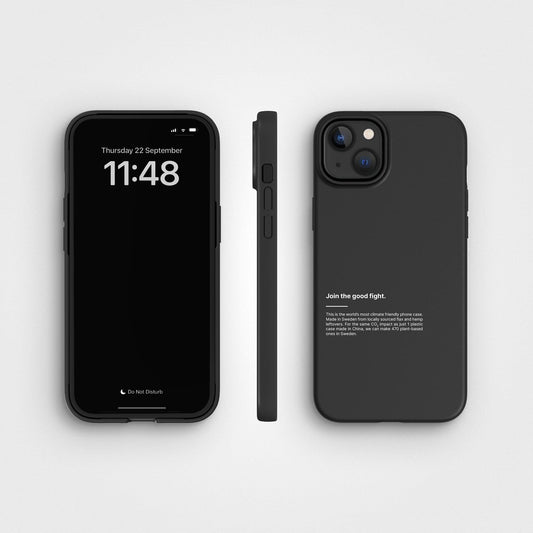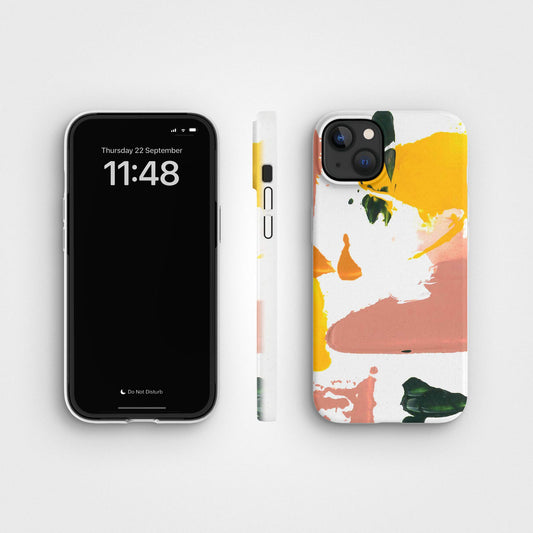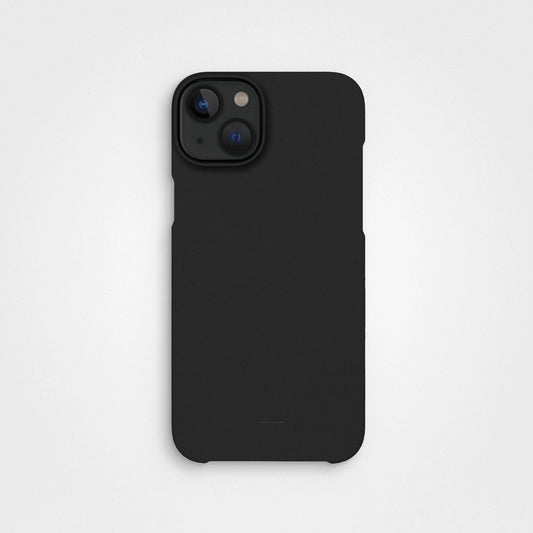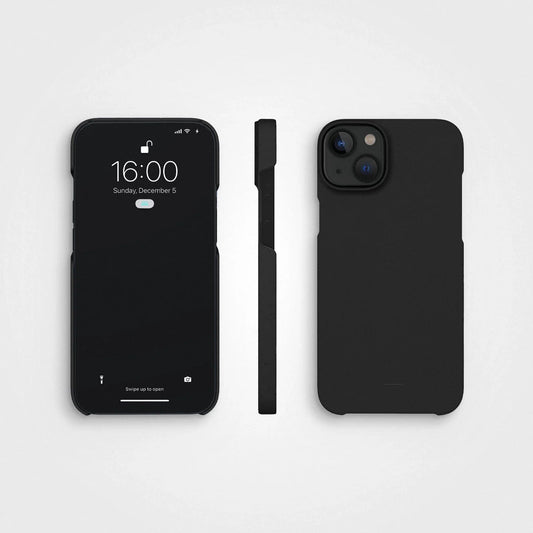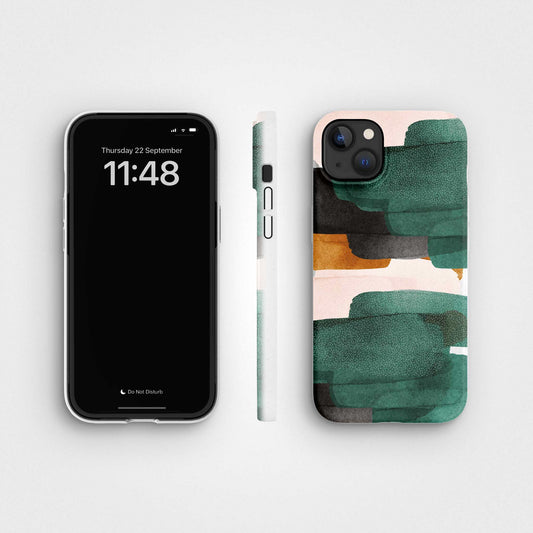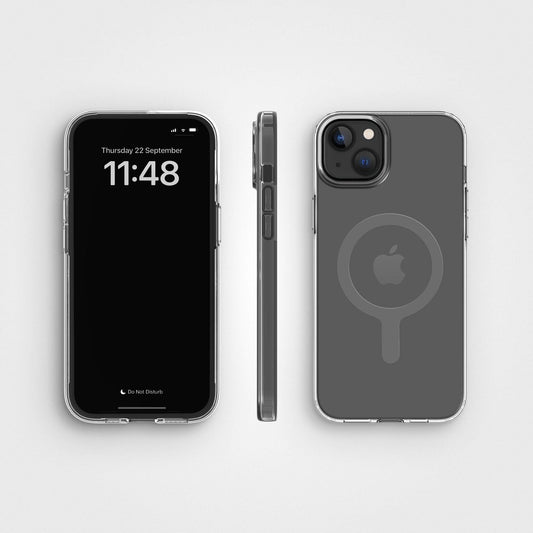In a world where the average American plows through a staggering 23.6 rolls of toilet paper each year, it's impossible to ignore the colossal environmental footprint left by the toilet paper industry. As we delved into the depths of this everyday necessity, we couldn't help but wince at what we found out.
But we're not ones to linger on problems without a plan for change. And so, our journey starts: to make a toilet paper that caresses your skin while cradling the Earth. Here's how we achieved it.
Quick links
-
Identifying the problem: unsustainable toilet paper consumption
-
Exploring sustainable alternatives: bamboo takes the lead
-
Bamboo toilet paper factory
-
Why choose our bamboo toilet paper?
-
Delivery and packaging: bringing bamboo toilet paper to you
-
agood company's bamboo toilet paper social impact
Identifying the problem: unsustainable toilet paper consumption
As mentioned earlier, the average American goes through 23.6 rolls of toilet paper (TP) per year. If we take America as an average and then multiply that by the 30% of the global population that uses toilet paper, around 2.1 billion people, then that’s... well we’ve run out of fingers but it’s a lot of rolls.
Since toilet paper is such a huge staple we decided to do some research into the industry. We didn’t like what we found.
It turns out that most toilet paper is born from the pulp of virgin trees, a process that mercilessly sacrifices our forests, relies on polluting chlorine bleach, and ends with the unsightly plastic wrapping. In the words of the legendary reggae artist Dawn Penn, our initial reaction was a resounding "No, no, no."
Exploring sustainable alternatives: bamboo takes the lead
To overcome the virgin wood problem we knew we needed to find a more sustainable alternative that has similar qualities. Bamboo emerged as a solution.

Actually a type of grass, it has similar properties to hardwood trees used to make regular wood pulp toilet paper and is a more than adequate substitute. The benefits are:
- Rapid growth - bamboo grows extremely quickly and, unlike trees, can be harvested over and over after reaching maturity
- Water efficiency - twice that of trees
- Increased yield - typically the average yield of bamboo of up to 150 tons per acre greatly exceeds the yield of 25 tons for most trees
- Natural antibacterial properties - no need for pesticides
- Nutrients are stored in the root system - no need for fertilisers
- Absorbs twice the amount of carbon than trees and produces 30% more oxygen
- Makes soft, naturally antibacterial paper.
Bamboo truly is one of the most sustainable resources available to us, we love it.
Bamboo toilet paper factory
Now we had the perfect material we had to find a factory. As bamboo is grown predominantly in Asia, we figured that would be the best place to find a factory to use it to make toilet paper with. Our intrepid sourcing team headed into the mountainous region of Guizhou in China, an area where bamboo has been growing naturally alongside other flora for thousands of years.
It was there, in the border city of Chishui, that they discovered the bamboo toilet paper factory we were looking for. The factory has been running since 2001 and runs on hydropower. The process they use to make the bamboo toilet role is straightforward and clean.


Bamboo toilet paper production
At agood company, we believe that every choice we make can make a difference. That's why we're proud to introduce our all-natural bamboo toilet paper, a sustainable solution designed to save the planet with every wipe, made from 100% sustainably grown bamboo.
Bamboo trees are turned into pulp and then pressed into the paper on giant-sized rolls. These are later divided into smaller rolls for smaller people like us. Any wastewater is taken care of in a closed-loop system and no bleaching chemicals are used, further reducing our environmental footprint.
Why choose our bamboo toilet paper?
Our commitment to sustainability starts right from the beginning. We carefully select bamboo that has been sustainably grown in the region for centuries.
What's even better is that our production process is incredibly water-efficient. We don't use any additional water, which helps conserve this precious resource for future generations. Plus, our process is completely bleach-free, which means we're reducing our impact on the environment even more.
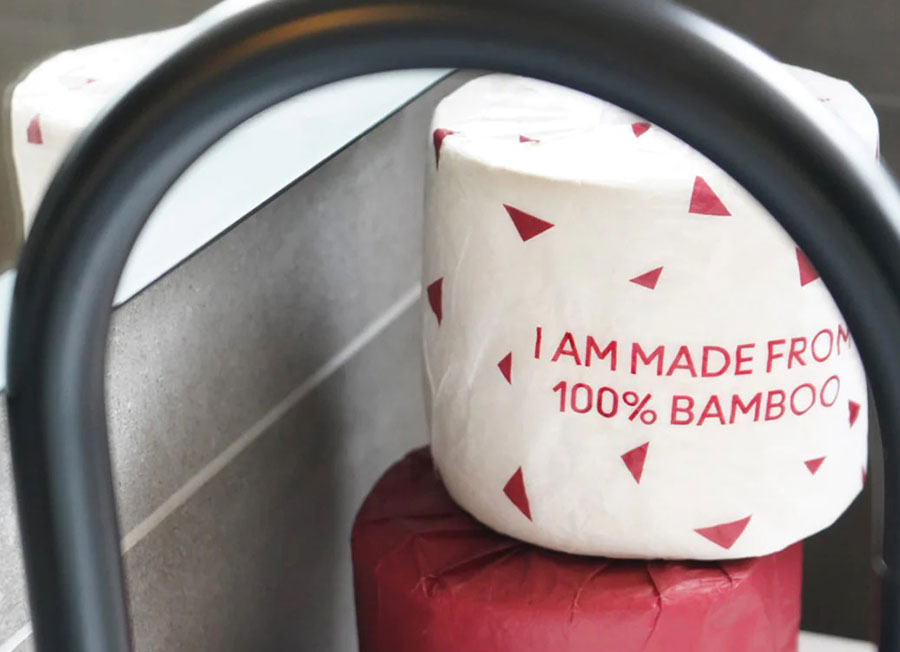

And when it's time to dispose of our bamboo toilet paper and kitchen roll paper, we've got you covered. While our product is not yet part of agood loop, it's designed with eco-friendliness in mind. Our toilet and kitchen paper will naturally decompose in water, and if you need to dispose of it, you can add it to your compost. Use the empty rolls for DIY upcycling projects or as additional compost material.
If you are still unsure, we have a comprehensive blog with everything you need to know about bamboo toilet paper, which delves deeper into the topic and provides more detailed information.
Delivery and packaging: bringing bamboo toilet paper to you
Now another crucial step: delivering it to our customers. We ship agood bamboo toilet paper from China to our fulfillment centre in Estonia and the US by climate compensated shipping. Climate compensation involves balancing out the carbon emissions produced during shipping by investing in environmental initiatives that remove or offset an equivalent amount of carbon from the atmosphere.
The last stage of delivery to your doorstep is also climate compensated, but what makes the final leg of the journey even more special is the packaging. Our bamboo toilet paper doesn't arrive in just any packaging; it comes wrapped in stone paper. Stone paper is a remarkable innovation in sustainable packaging. Unlike traditional paper made from trees, stone paper is produced using significantly less water and zero wood pulp.
Packaging innovations for bamboo toilet paper
To increase sustainability, we also introduced two major packaging innovations with agood company toilet paper.
- We exchanged the inner roll from pulp paper to bamboo paper. This innovative switch reduces our reliance on virgin wood pulp and enhances the overall environmental friendliness of our product. Bamboo, being a rapidly renewable resource, aligns seamlessly with our mission to minimise our ecological footprint.
- We used to wrap our bamboo toilet paper rolls in plastic, but not anymore! Now, we individually wrap each roll with bamboo paper. This means there's no plastic involved at all. It's our way of reducing plastic waste and being kinder to the Earth.

Our commitment to sustainability
Everything from the raw material to the manufacturing process to packaging and delivery has been designed to have the least environmental impact possible. We know we’re not perfect though, and we’ll continue to keep looking at ways we can improve our process.
agood company's bamboo toilet paper supports women worldwide
Over 500 million women worldwide face challenges in managing their periods, often leading to missed school or work and social stigma. How do we make a difference? For each bamboo toilet paper or kitchen roll subscription, we partner with the organization Days for Girls to provide period kits to women in need. Our collective goal is ambitious – to end Period Poverty. While it will take time, effort, and collaboration from everyone, we aim to provide at least 10,000 period kits every year.

Final thoughts
If you're thinking about going eco-friendly in your daily life, here's a great tip: consider switching out your regular or recycled toilet paper for bamboo toilet paper. Bamboo toilet paper offers a unique combo of softness, durability, and eco-consciousness.
One of its standout features is how well it breaks down after use. You won't have to deal with annoying clogs in your pipes or septic system anymore. What's even cooler is that bamboo is incredibly renewable and it grows super fast, without the need for lots of space, fertilisers, or pesticides.
In the end, the choice is yours to make. But remember, you are making a conscious choice for the environment every time you use bamboo toilet paper. Give it a try. It’s sure to be worth your while!


